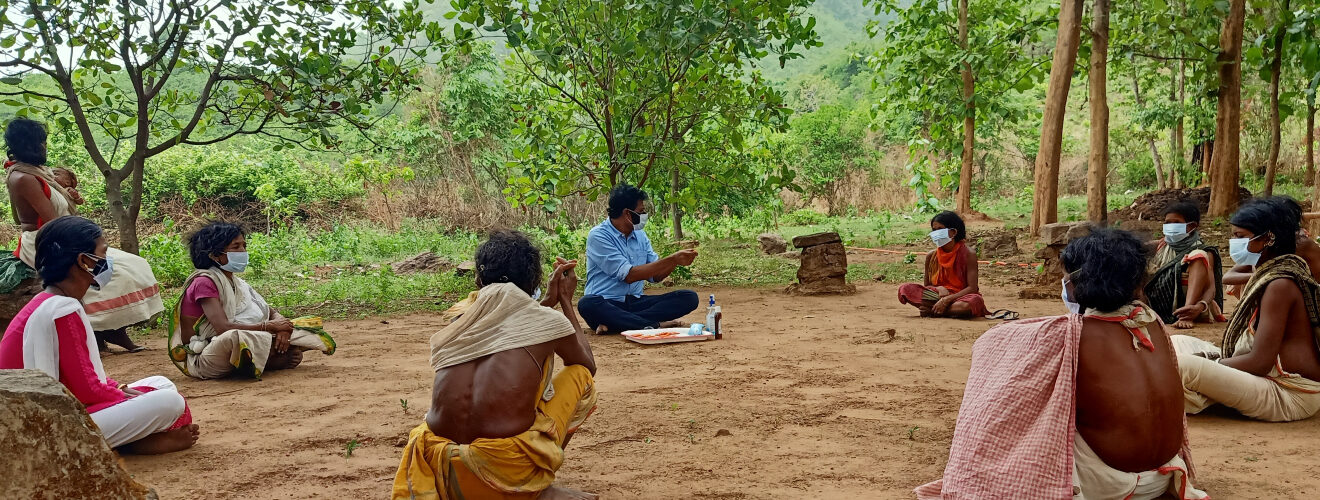Tribes in India

Odisha (previously simply called Orissa) is uniquely proud for the tinted spread of ethnic mosaic brought over by the 62 culturally vibrant tribes including 13 primitive tribe groups, who are found sprinkled all over the state. Tribes India.

Tribes India
Kondh Tribes “One sub-group of Kondhas is the Dongria Kondhas. They inhabit the plateaus of Niyamgiri hill ranges which cover parts of Rayagada and Koraput and Kalahandi districts.
Their major concentration is found in the blocks of Kalyansinghpur, Bissamcuttack and Muniguda. They are called Dongria or dweller of donger (“hill” in Oriya) and love to settle in higher altitudes due to their economic demands”.

Tribes India
The Kondhs, or the Kui as they call themselves are one of the well known tribes and the largest tribal community of Orissa. With a population of around 1 million, who were famous in history for their Merial Sacrifice (human sacrifice); practiced no more. The Kondhas are believed to be from the Proto-Australoid ethnic group. Their native language is Kui, a Dravidian language written with the Oriya script.

Tribes India
The Kondha are adept land dwellers exhibiting greater adaptability to the forest environment. Dense sal forests were their playground: they hunt with the ease of all primitive races with bows and axes. The Niyamgiri Hills where the Dongria Kondh dwell are covered by superb natural forests and home to many rare species like the Golden Gecko and the Giant Squirrel. The Dongria Kondh call themselves Jharnia meaning those who live by the Jharana (streams). Hundreds of perennial streams flow from Niyamgiri hill, and there are hundreds of Dongria villages by the streams. The Dongria are the protectors of these streams, hills and jungles and are revered by people in the nearby plains.

Tribes India
The majority of the Dongria Kondha live in 55 villages that are all assisted in different ways through various projects initiated by New Hope India. We are now the long time serving Non Government Organisations working without real interruption with this small community.
They still carry out some strange to us ceremonies. Many are now kept in secret simply because they don’t like outside publicity. New Hope India makes no attempt to change the cultural ways. What we have tried and succeeded in is a co-operation that has allowed them to adapt some traditions for their benefit. Iodine deficiency across the whole area showed up in the medical term imbecile. Across India there has been a successful promotion of use of Iodized Salt. However to implement this among traditional people who believed in the ‘power’ of rock salt was not easy. We explained the situation and offered rock salt with 25% newly Iodized non rock salt mixture. It slowly rose to 75% and in most places today is accepted by all women. In the same area as tribal Dongaria there are also other non tribal communities. This is a change that occurred post British and with the opening up of area where people labeled as Schedule Caste came and interacted trade wise with the Tribes. Rarely to the Tribes advantage. A barter system existed for year. One change that came through New Hope was the idea to sell forest Tribal collected goods and materials by weight and not by ‘head load’.

Tribes India
The saddest part of our working together has been a decline, again, in child survival. There are many reasons for this but one can not ignore the complicated situation between group s of anarchist and the anti mining campaign. Its very political. The bottom line is that children are being born under weight which is due to malnourished mothers. Less food availability in the villages of Tribes India.
THE SHORT TERM ANSWER – We have been supplying pregnant women in 34 villages who use the same path and track down from the hills towards town and the market to stop both ways for a food supplement. Usually at least one egg and germinated legumes, with an iron supplement. Its has started to show positive signs. The longer term is to make the villages self sufficient again. To supply poultry to women as a starting point.




